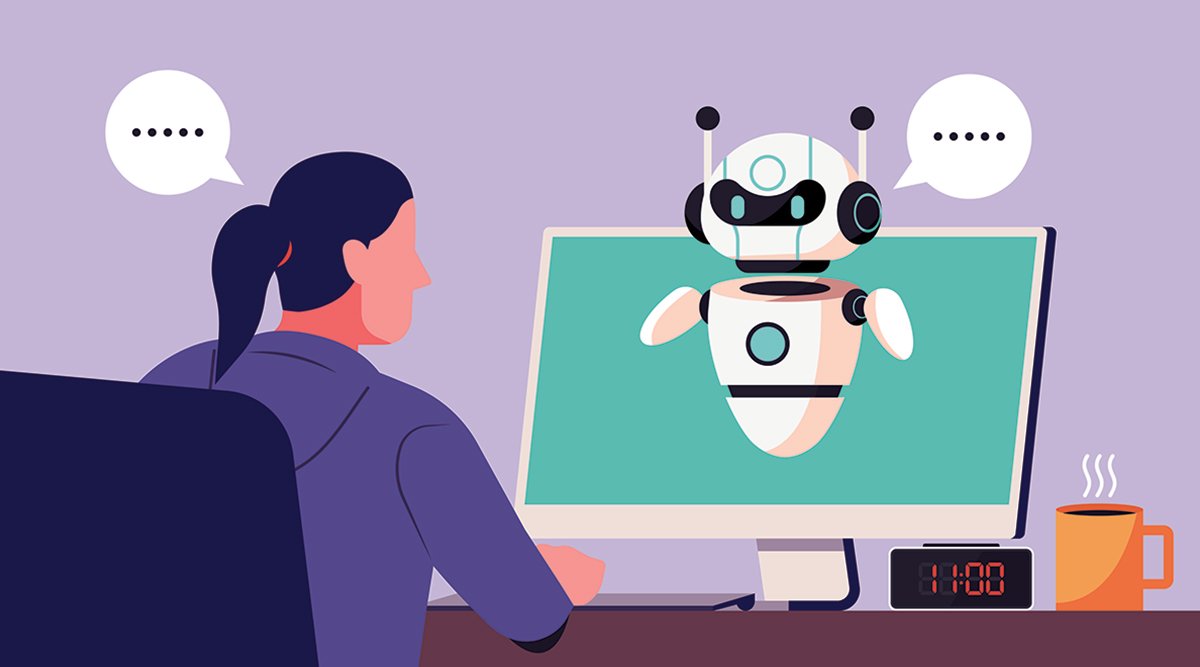Recent Posts
Job Interviews Go High-Tech with Conversational AI Software

Job Interviews Go High-Tech with Conversational AI Software
In recent years, the hiring landscape has undergone a significant transformation with the integration of conversational AI software into job interviews. This technological advancement is reshaping the recruitment process, offering both opportunities and challenges for employers and job seekers alike.
The Rise of Conversational AI in Recruitment
Conversational AI refers to technologies that enable machines to engage in human-like dialogue. In the context of recruitment, these systems can conduct interviews, assess candidate responses, and provide feedback without human intervention. Companies like HireVue and Interviewer.AI have developed platforms that analyze speech patterns, facial expressions, and other cues to evaluate candidates’ suitability for roles. These tools aim to streamline the hiring process, reduce biases, and improve efficiency.
Benefits of AI-Driven Interviews
Efficiency and Scalability: AI interviews can handle large volumes of applicants simultaneously, reducing the time-to-hire and allowing recruiters to focus on top candidates.
Consistency: Standardized questions and evaluation criteria ensure that all candidates are assessed fairly, minimizing human biases.
Flexibility: Candidates can complete interviews at their convenience, which is particularly beneficial for those in different time zones or with scheduling constraints.
Data-Driven Insights: AI systems can provide detailed analytics on candidate performance, helping recruiters make informed decisions.
Challenges and Concerns
Lack of Human Touch: Some candidates find AI interviews impersonal, missing the nuances of human interaction that can be crucial in assessing cultural fit.
Technical Glitches: Instances of AI malfunctions, such as repetitive or irrelevant questions, can frustrate candidates and reflect poorly on the employer.
Bias in Algorithms: If not properly designed, AI systems can perpetuate existing biases present in the data they were trained on, leading to unfair assessments.
Privacy Concerns: The collection and analysis of video and audio data raise questions about candidate privacy and data security.
Best Practices for Employers
- Transparency: Inform candidates when AI will be used in the interview process and explain how their data will be handled.
- Bias Mitigation: Regularly audit AI systems for biases and update algorithms to ensure fair assessments.
- Human Oversight: Combine AI assessments with human judgment to capture a comprehensive view of each candidate.
- Candidate Support: Provide resources and guidance to help candidates prepare for AI-driven interviews.
Preparing for an AI Interview: Tips for Candidates
- Practice: Familiarize yourself with common interview questions and practice speaking clearly and confidently.
- Environment: Choose a quiet, well-lit space for the interview to ensure optimal video and audio quality.
- Authenticity: Be yourself and avoid scripted responses; AI systems can detect unnatural speech patterns.
- Technical Readiness: Ensure your equipment is functioning properly and that you have a stable internet connection.
The Future of AI in Recruitment
As AI technology continues to evolve, its role in recruitment is expected to expand. Future developments may include more sophisticated assessments of soft skills, integration with virtual reality for immersive interview experiences, and enhanced personalization of the interview process. However, the human element will remain essential to capture the full spectrum of a candidate’s potential.
In conclusion, conversational AI software is revolutionizing job interviews by offering efficient, consistent, and scalable solutions. While challenges exist, thoughtful implementation and continuous improvement can harness the benefits of AI while maintaining the human touch that is vital in recruitment.
Recent Posts
Categories
- Actor4
- Actress7
- Bank4
- Biography2
- Bollywood2
- Business10
- Company9
- cricket3
- Economy21
- Education3
- Entertainment32
- External Affairs Defence Security1
- Football1
- Health1
- Hollywood1
- Home1
- India45
- india4
- Industry6
- Latest News10
- lifestyle1
- maharashtra1
- market1
- Politicians13
- Politics27
- Press Release144
- Social8
- Sports23
- Stock Marekt18
- Technology16
- Tollywood1
- World37
- world4
Related Articles
iPhone 17 Pro: New Design, Camera Upgrades & More
Apple’s iPhone launches are among the most anticipated events in the technology...
ByNewsium DeskAugust 29, 2025“Threads to Get X-Like Long-Form Text Sharing Soon”
1. What’s Rolling Out? As of August 28–29, 2025, Threads is rolling...
ByNewsium DeskAugust 29, 2025“Samsung Galaxy Z Flip 7, Flip 7 FE: Cashback & EMI Offers”
Samsung Galaxy Z Flip 7 & Z Flip 7 FE: Elevating Foldable...
ByNewsium DeskAugust 8, 2025Spotify Raises Premium Subscription Prices in India – New Rates
Spotify has announced a significant price increase for its Premium subscription plans...
ByNewsium DeskAugust 5, 2025















Leave a comment